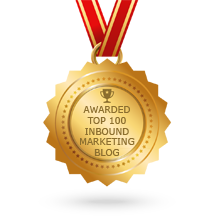When I asked this at a recent business networking function no hands went up.
Now this is a group of proactive, dynamic, driven small business owners and I had expected that at least one person would have caught onto the ‘Inbound Marketing' wave. Admittedly this is a new term, or as some marketing veterans would have us say an old term, applied to new technology. Basically it's a term that is applied to ‘permission' marketing and developing a strategic web presence so your prospects can find you when they're looking. With the rapid pace the internet is growing and changing with new technology it's no wonder business owners are being left behind with the latest tools to market their business.
The toughest thing for small business is having the money to market their business and with the recent tough economic climate, increasing marketing expense without knowing its ROI is something business owners aren't prepared to risk.
So let me explain in brief how inbound marketing is helping small business and why it must be part of every business's marketing mix in 2009.
1. Your Strategic Web Presence:
This is more than a website, it's about all your online activity showing up in searches when your prospects are looking for your product or service. It's about having a presence across all search engines and the various social media sites for your web pages, blog articles, videos, podcasts, press releases, photos and presentations.
2. Your Website:
Your website is to provide the information your prospects are looking for and providing an easy process to convert your visitors to leads and leads to customers. The purpose of your website is to ‘CONVERT'.
3. Choosing The ‘Right' Keywords:
The right keywords are often not the high volume keywords that you think, so it's important to do research and learn what terms your prospects are using when they're searching or interacting on the internet. It's about targeting some of the more specific keyword phrases that may have a lower search volume but better chance of ranking in the top 10 and driving qualified prospects to your site.
4. Organic Rank:
With 80% of searchers clicking on organic listings over the paid listings, organic rank should be part of your long term goal. The best way to boost your rank is through inbound links; directories, industry listings, blogging and social media.
5. Blogging:
Blogging for business serves many purposes and should be on every business owners weekly ‘to do' list, and definitely part of any marketing strategy. In saying that, there should be some planning done before you jump into blogging so that you get the results you're seeking. You need to think about who your audience is and what information is of value to them. Each article should use your keywords, hyper linking these keywords to your website or other pages of your website. Part of successful blogging is also about subscribing and commenting on others.
6. Search Engine Optimization (SEO):
Optimizing all your online content and constantly reviewing your position in the search engines compared to your competition and against your goals. Testing and measuring new strategies to get you closer to your desired goal. There are tools to help you do this and experts to do it for you.
7. Social Media Marketing:
Social media strategies should be focused using social media tools to achieve business goals through: customer relations, market research, customer research, competitor tracking, building strategic partnerships, networking, promotion, optimizing and driving traffic to your website.
8. ROI:
It's all about testing and measuring and knowing your ROI. For this you need the right SEO and social tools and reporting. There are some easy to use tools for business owners and inbound marketing experts available to train you or do it for you.
None of this should be started without an Inbound Marketing Plan. The first step, like any traditional marketing includes research and analysis to know your market and identify your opportunities. The second step is to identify clear marketing goals and thirdly a strategic inbound marketing plan that will achieve your goals. Not every social media tool is right for every business based on goals, budget and market, so take the time first to have a Strategic Inbound Marketing Plan developed that is aligned with your goals by a inbound marketing professional who can walk you through each step of the process and coach you if needed.
Are you ready to include Inbound Marketing into your marketing mix? The first step is to book in a complimentary consultation to talk about your goals and identify the best strategies and tactics for your unique situation.
Does that help explain Inbound Marketing or are you still unsure how it will benefit your business? I would like to hear your comments or questions regarding Inbound Marketing.

